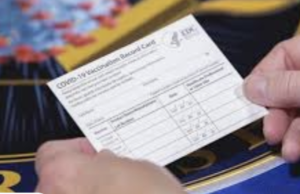Daily with Diabetes: Student hopes for cure to life threatening disease
By: Ben Boezinger
I stir from my deep slumber as the acute amount of light protrudes into my room from outside. I poke my finger and blotch the deep crimson red blood onto the miniscule strip. I walk over to the cabinet filled with sugar foods and drinks in my room and snap the tab on a mini-Sunkist and down the whole cylinder into my gut. I snap another tab and down another can. I sulk back into my bed and shortly after I collapse into another sleep only to be awakened and begin the routine of more ups and downs of a normal day.
Since Sept. 5, 2003, my pancreas has not functioned. The white blood cells in my body were stupid enough to attack, dismantle and destroy the organ that is used every second of your day. The pancreas works to even out the body’s glucose level. When you intake sugar or carbohydrates, the pancreas produces insulin to counteract the movement. The insulin molecules attach and prevent the sugar to rise too drastically. When you fast, or just don’t take in food for an amount of time, you dig into your sugar reserves to resurrect the sugar cells and disperse them among the blood stream. Without this function in my body, I have to constantly manually make the missing link in my abdomen.
My days always start with a dreary-eyed finger poke. I take the dot of blood that has emerged from my finger and plot it on the strip. I take the number from the small digital screen and input it into my CGM (continuous glucose monitor).
Next I continue on my day normally. The only real difference is that attached to my stomach I have a long cord constantly pumping a life saving liquid into my body. Usually it’s hard for me to notice or remember my diabetes. I’ve been so accustomed to always having a needle in my body that I almost never remember that I’m plugged in.
However, when I am battling a virus, it distracts the particles in my body, like insulin, from doing their job. Now the main priority is to get the virus out of my body. Because of this, it is extremely difficult to maintain a constant good blood sugar. Many times I’ll be upwards of 300 all day. Whenever this happens, it becomes a starting point for a string of bad events. The higher that my blood glucose climbs, the worse I feel. The muscles in my body are weak and not getting protein and nutrients. My head starts to feel like someone is desperately trying to squeeze a last bit of lemon juice out of a lemon. My stomach feels like it just had been pummeled by Anderson Silva’s ferocious knees. The longer I wait to take care of my high blood sugar, the worse it gets, eventually climaxing to myself getting trapped in a deep comatose state — most likely one that I won’t be able to escape. The worst fear is this is all happening when I’m asleep, so I’m not able to feel any of those symptoms through my deep wall of sleep.
All lot of people ask, “What happens when you get too low?” Basically the exact the opposite. My body shakes and tremors like an earthquake. My muscles twist and spasm while my body becomes more tired by the growing seconds. My main instinct while this happens is to intake anything that has sugar. I become like a vacuum, sucking sugar foods and drinks down deep into my stomach.
While most of the time I am awake and conscious when I get lows, when I’m asleep and it hits me, that’s when the problems start. When I am asleep and my glucose level drops far enough, my body forces me to wake up. I plunge out of my deep sleep before I actually realize that I’m low. Having it wake me up is like having a cold bucket dumped on my head. When I do not wake up, that’s when the trouble starts. First what will happen is loss of oxygen to my brain. My face slowly turns a deep purple. Then few moments later my body convulses and I go into a seizure epidemic. If I’m not saved from the clutches of this glucose overload, then my body will slowly fall into a deep oblivion as my seconds dwindle until my heart stops.
While the chances of this happening are incredibly low unless I lack taking care of myself, I really face the chance of death every day, one tragic occurance away from an uncertain future. I hope that in the nearest future that the cure for this disease will put away the constant fear of living diabetic.









You must be logged in to post a comment Login